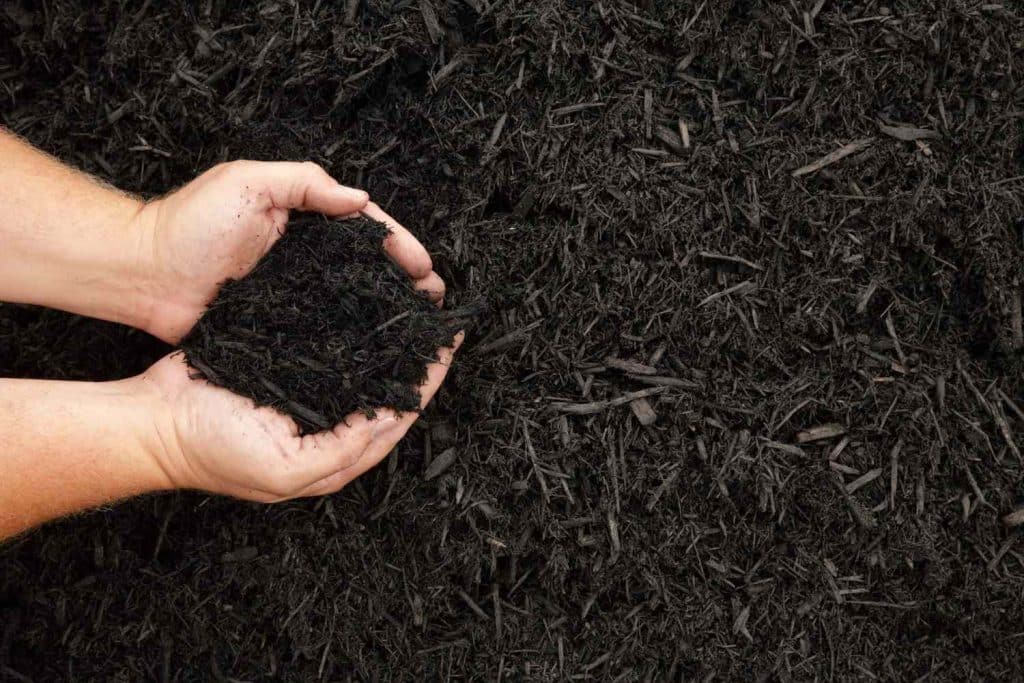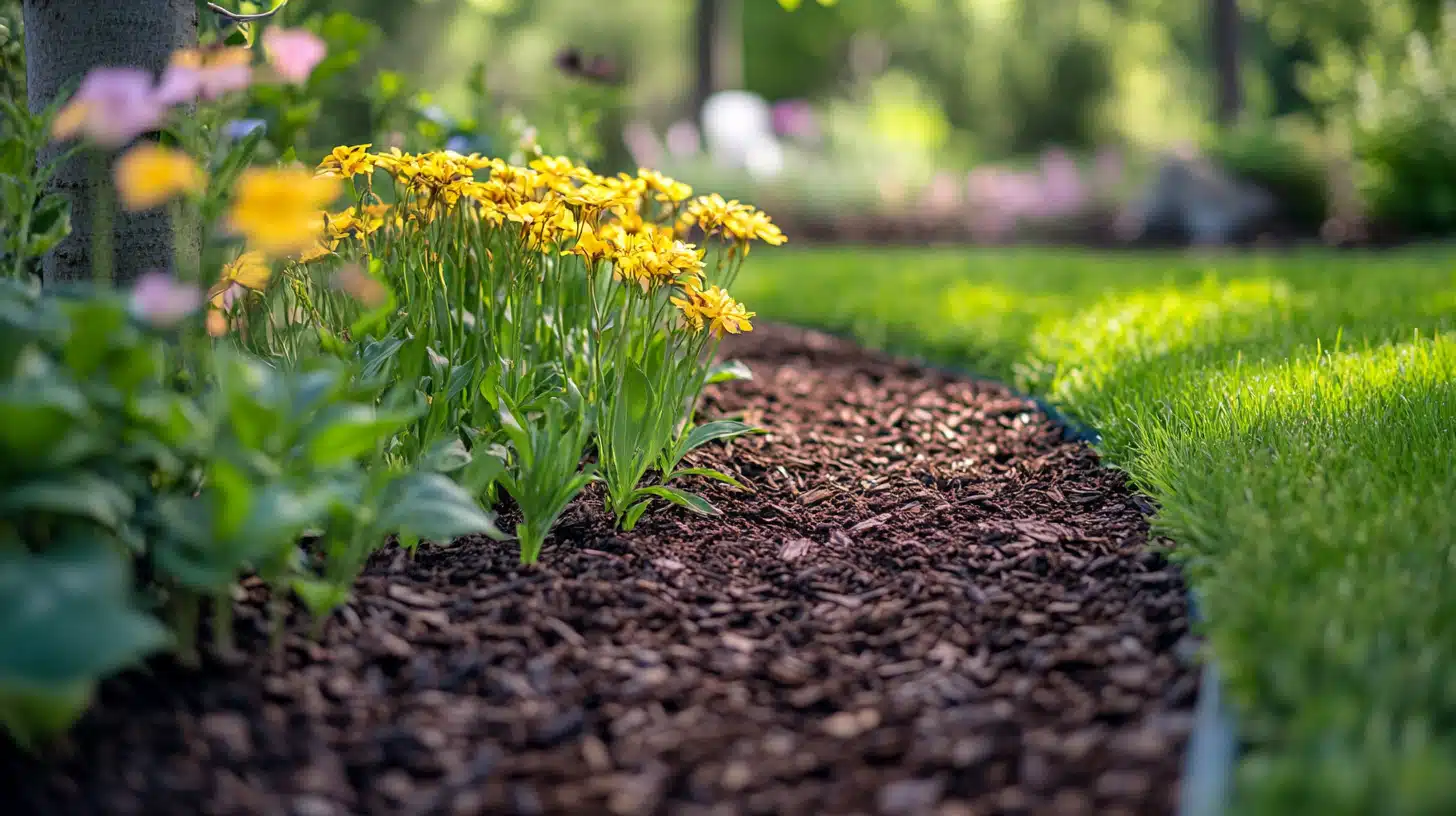How much do you know about using mulch in your garden? Mulch is one of those not-so-secret gardening hacks that, unfortunately, not every avid gardener is using correctly. The thing is, some mulches are more aesthetically pleasing than they are functional.
Today, we’re going to help you make the best choice when it comes to picking organic mulch for your garden! In this article, you’ll find a comprehensive guide to the different types of mulch and where it is best to use them in your garden.
What Are the Different Types of Organic Mulch?

There’s a lot more to organic mulch than what meets the eye, and there are tons of different options that each shine in different parts of the garden. Knowing more about the different types of organic mulch will help you to use them best. Here are some types of organic mulch you should consider using:
Grass Clippings
Grass clippings are a wonderful type of organic mulch and are best used for those remote areas where you want to tackle the weeds. Due to grass clippings having a high water content and decomposing at a fast rate, suppressing weeds is where it works best. One thing you need to be aware of when using grass clippings as mulch is that it can get pretty slimy and has an unpleasant smell (hence, we say it’s best for remote areas and not near your windows).
Bark
For a mulch that will do a good job around trees and shrubs, try bark mulches. The reason why bark mulch does well in these areas, and even around walkways and foundation planting, is because it doesn’t mix really well into the soil, so it’s more of a hassle than anything if you want to use it in garden beds where you’re going to be digging a lot, but it lasts longer than most of the other organic mulches so does really well in areas where you’re using them for more for its aesthetic value.
Pine Needles
If you are looking for a mulch that does a good job of suppressing weeds and retaining moisture in the soil without compacting – you’ve got to try pine needle mulch. This kind of mulch is a natural soil enhancer that helps reduce soil erosion, and its light and fluffy texture makes it super easy to spread around.
Many people worry that using pine needle mulch will lower the pH level of the soil, and while it may be slightly more acidic than other options, it’s still not enough to cause damage to the plants. If this is a concern for you, then it’s best to avoid using fresh green pine needles. It’s also important to note that pine needles are not ideal for use as mulch in fire-prone areas as they burn fast and can be blown around easily.
Straw and Hay
Straw and salt hay mulches are particularly good at keeping soil and soil-borne diseases away from the plant leaves, keeping pathways less muddy and helping manage the pest population in the gardens down. This is because straw and hay mulch decomposes at a considerably slow rate, which makes it the perfect location for spiders and other garden-friendly insects to come and make a home. It’s also really easy to rake and work, so it’s perfect for use in your veggie garden.
Newspaper
The print media may be dying, but it’s still a great option for mulch. Yes, newspapers, especially those more eco-friendly options that use soy-based black ink and hydrogen peroxide as bleaching pulp, are popular for mulch. All you have to do is layer four to eight sheets around your plants, moisten them, and then cover them with another type of organic mulch, like straw, hay, or grass.
Shredded Leaves
You can think of shredded leaves as nature’s favourite mulch. It may not be the most aesthetically appealing mulch, but in most cases, it’s free, can be used virtually anywhere in your garden, and attracts all the good little gardeners like earthworms and spiders.
Shredded leaf mulch is particularly good for woodland gardens because it does not always look great in typical gardens. If you do want to use it in your vegetable garden, make sure to spread a layer of it in Autumn so it can decompose throughout the winter.
You can also use unshredded leaves, but they tend to mat together and repel water in the rain, which is not what you want.
Why Is It Important to Know Where Your Mulch Comes From?
One of the biggest reasons you should be using mulch is to prevent weeds, which is why it’s necessary to be fussy about where you get your mulch from. Some mulches are likely to contain viable weed seeds or harmful chemicals.
So, not being careful about where you source your mulch means you could potentially be adding weeds to your garden or contaminating it. This is why when you’re buying mulch products, you need to get it from a trusted source.
Final Thoughts
Want your garden to flourish? Then you need to be mindful of what you’re using, especially when it comes to mulch. Organic mulch is a brilliant way to try and stop the weeds from infiltrating while also helping regulate the soil temperature and retain moisture, but you’ve got to be careful about where you’re sourcing it from and what type of mulch you’re using.

